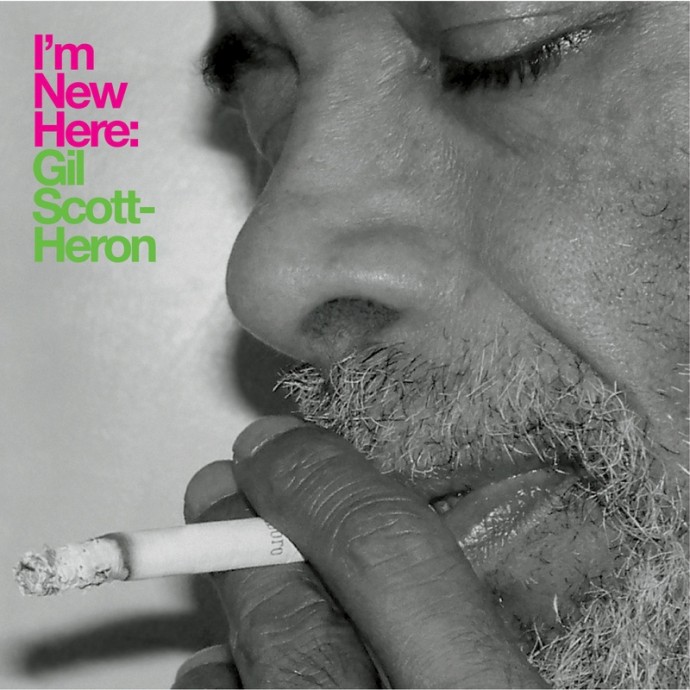Gil Scott-Heron. I feel almost ashamed that it’s taken me until now to write about him. His is a singular talent. He is almost the dictionary definition of a freethinker.
Let me start with his latest album. A liner note asks that you listen to the album ‘for the first time under optimum conditions’. I have to confess that I didn’t. Optimum, as the note continues, is at home, free from distraction. It involves listening throughout. It involves thinking about what you just heard. I had it on my iPod. On a flight. Sorry, Gil.
I should have listened to the advice. Not because I was distracted. No, I was totally engulfed by the album. A Lost-style catastrophe may have shaken me, but nothing else. Having time to think and reflect was also unnecessary. The album hit me such a punch to the guts that the emotions it conveyed were pretty clear. This is why I should have taken the advice. From the opening song, ‘On Coming From a Broken Home (Part 1)’, I was an emotional wreck. Not a pretty sight on a flight. A frail, yet familiar voice singing – no, speaking – about such honest, personal memories. A voice conveying a simple message of love and admiration. Ladies and gentlemen, I give you Gil Scott-Heron: he made me cry real tears on a flight.
Gil Scott-Heron’s ability to share vivid images is startling. As befits a performer who started out as a poet (and as a talented novelist), his lyrics are at heart of what makes him a truly astounding artist. Social commentary has never been so perfect. Tracks such as ‘The Bottle’, ‘Home Is Where The Hatred Is’, ‘Winter in America’ and ‘H2OGate Blues’ simply have no peer in their coverage of the social ramifications of drugs, alcohol addiction and the crisis in American politics in the early 70s. With ‘We Almost Lost Detroit’, he even manages to nail – 100% – a critique of the nuclear power industry, and the politics which led to a near catastrophic meltdown.
But flip the coin, and you have an artist who was capable of tracks such as ‘Your Daddy Loves You’. This is beauty in the form of music. Or of ‘A Lovely Day’, which pretty much does what it says on the tin.
Lyrically alone, Gil Scott-Heron’s output would be worthy of huge praise. Throw in the fact that his words were set to deep funk, to African-inspired jazz, to straight ahead soul – and you’re onto one of the single most important artists that has influenced music innovation over the past 40 years. No, I don’t think he created hip-hop – but I do think that he laid down the template which would be at least referenced through until today.
And so, with this in mind, I encourage you to see the man while he is still performing. After a few ‘difficult’ years spent battling drug addiction, and serving time in the US prison system, he’s back. He’s clean. He’s also at the top of his game – though the game is a slightly different one now that Gil Scott-Heron is an old man. With a minimal backing band, the focus is now squarely on his performance. It’s a bold move, and a statement in itself. You see Gil Scott-Heron now almost out of reverence. It’s like standing at the altar. His deep voice resonating from the stage, though cracked, still manages to inspire.
I started by explaining about how Gil Scott-Heron made me cry real tears on a flight. He’s also done it in concert. On a recent trip to see him, he played one of his early tracks: ‘Pieces Of A Man’. On record, it’s a soulful song – deep with meaning, and sung with passion by a young man, angry at the world. Hearing the older Gil Scott-Heron, with his frail, yet familiar voice, the song takes on an entirely new meaning.
Jagged jigsaw pieces
Tossed about the room
I saw my grandma sweeping
With her old straw broom
But she didn’t what she was doing
She could hardly understand
That she was really sweeping up…
Pieces of a man
Reflecting on a life. Reflecting on mistakes made. Reflecting on people who are no longer here. I can’t have been the only one struggling with the tears on that night.


One reply on “The raw emotion of Gil Scott-Heron”
[…] me, the news was immediately exciting. I’ve gone on record about my admiration for all things Gil Scott-Heron. He wrote ‘Pieces of a Man’; one of the most […]